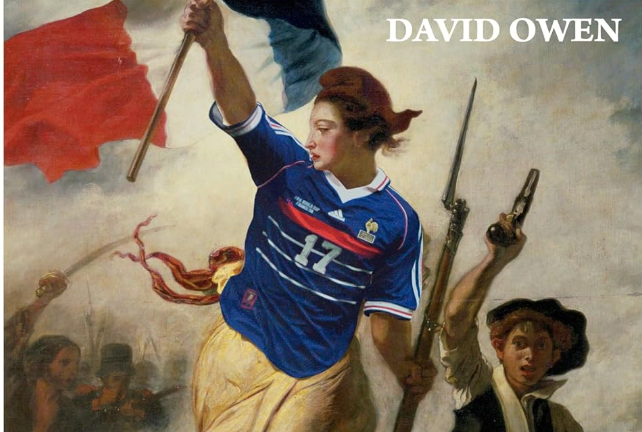1924-2024 Olympic football - Aux Armes!

In a passage from his latest book "Aux Armes! Sport and the French - an English viewpoint," columnist David Owen from Insideworldfootball talks about where the journey to the successful World Cup began.
The 1924 Paris Olympics, held in one of Europe's most fascinating cities, solidified the sense of stability that the International Olympic Committee had started to achieve after the tumultuous Great War. The event allowed Pierre de Coubertin, the creator of the Modern Olympics, to enjoy the growing recognition of his creation, especially since he had been overshadowed by the French State when the Olympics were first held in his hometown 24 years earlier. The Games also provided the city, already a hub for artists and innovative thinkers, with improved sports facilities.
In 1924, Paris was the birthplace of the sport of soccer, which would go on to become massively popular worldwide.
The new Colombes stadium, constructed on the location of a former sports ground that used to be a racecourse, was unable to hold all the people who came to the outskirts of the city for the final match of the 22-team tournament. This tournament continued to be the largest international football event in terms of participating countries until 1952.
According to the New York Times, the stadium was completely full with 60,000 people, with several thousand more trying unsuccessfully to get in. Despite the fact that the finalists were two smaller countries, Uruguay and Switzerland, the turnout was remarkable. Uruguay, who would go on to be a force in international football for the rest of the decade, had already beaten the host nation in front of a large crowd at Colombes by a score of five goals to one.
Football brought in nearly 1.8 million francs in ticket revenue, making up almost a third of the total earnings from the Games. The sport of athletics, which later received attention in the movie Chariots of Fire, generated just under 1.6 million francs and was the second most popular sport at the event.
The Games were not considered a complete success by everyone, as expectations were extremely high. Some believed that international sports could play a role in preventing another destructive global conflict.
During the month of April, as the countdown to the start of the Games continued, the New York Times stated that never before has sport captured the imagination of all nations to such a great extent. The newspaper further expressed that the world seems to be experiencing a peak in athletic interest, possibly in response to the aftermath of the great war. Philosophers even suggested that the people of the world could be united through the shared love of sports.
It is important to note that Germany was still excluded from the Olympics, despite the idea of a shared love for sports. However, it was significant that some members of the American team were going to travel to Cherbourg on an old military ship, which added to the symbolism of the event.
What really occurred was that the increasing emphasis placed on sporting achievements led to conflicts driven by nationalism among athletes and fans. This began at the rugby union championship on May 18th, where the USA defeated France, sparking outrage among the audience.
The Belfast Telegraph had a bold headline that read "Exciting Olympic rugby" and shared details of a intense match. Fans expressed their disapproval of the "aggressive" playing style of the Americans. An American fan who argued with a French spectator was reportedly "rendered unconscious" and had to be taken to the hospital on a stretcher.
Other Olympic sports impacted by incidents of disorderliness or more serious issues included boxing, fencing, water polo, and tennis. Many of the events that took place would have generated minimal attention in our current era of growing nationalism.
Towards the end of the Games, a major controversy was brewing. The harshest critique came from The Times, a publication known for its ties to the British elite. An article titled "Olympic Games Doomed" by a special correspondent in Paris compared writing it to delivering a eulogy for the Olympic Games.
De Coubertin dismissed this criticism, saying that the Games have been a positive force since they were brought back. He stated that if he ever saw the Olympics causing conflict between countries, he would suggest ending them.
One hundred years later, the legacy of his lifetime of effort remains present in our lives.
Aux Armes! is available for purchase through Fairfield Books. You can buy it here:
David Owen worked for the Financial Times for 20 years in different countries such as the US, Canada, France, and the UK. He finished his career with FT as the sports editor after the 2006 World Cup. Currently, he is freelancing and has covered events like the 2008 Beijing Olympics, the 2010 World Cup, and London 2012. You can find updates from Owen on his Twitter account @dodo938. For further inquiries, you can reach him at moc.l1721916348labto1721916348ofdlr1721916348owedi1721916348sni@n1721916348ewo.d1721916348ivad1721916348.









































